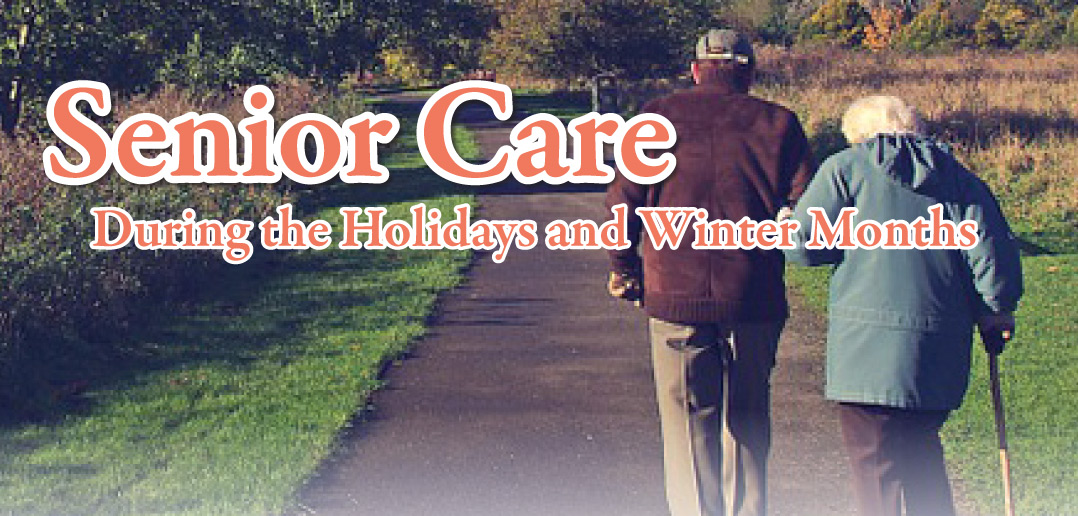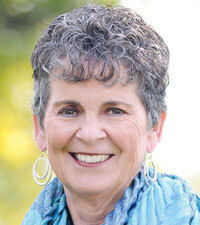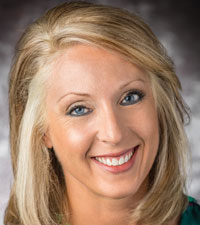Senior Care – During the Holidays and Winter Months
When we think of the holidays, our thoughts often turn to the twinkle of Christmas lights and the warmth of a cozy fire. We remember pleasant times with family and friends, kitchens packed with good food, cheerful and festive music—all the things the holidays should be filled with. What we may not think of are the people in our midst who feel disconnected from the cheer and the warmth.
For the seniors in our community, the holidays can be difficult and lonely, especially when they’ve lost a spouse or family member who they’re missing a little extra this time of year. Growing health concerns can also cause seniors additional strife during the holidays as they may be unable to attend their usual gatherings due to mobility issues, chronic pain, or memory loss.
The daily challenges and limitations that many seniors struggle with are amplified when it seems like everyone else is gathering together during the holiday season to enjoy themselves. At Strictly Business, we believe the holidays should be just as warm and welcoming for seniors today as they were for them 30 years ago. We encourage readers to reach out and give special attention to your elderly family members, neighbors, and even strangers who are living in an assisted living community. Find small ways to include them and make them feel special—give them a Christmas card or a plate of cookies, sing them some carols, or take them on a drive to see Christmas lights.
When you are spending time with your elderly loved ones, make sure to watch for any signs of them requiring additional care or assistance that they may not already be receiving. Some seniors may wish to avoid putting a damper on the holiday spirit by alerting their family of growing health concerns. Other seniors may not even be aware of their own needs. With all this in mind, we decided to talk to some local experts in the senior care industry for more advice.
Kyle Johnson with Care Consultants for the Aging had much to say on the importance of addressing all aspects of physical health for seniors as early as possible, especially leading into the winter months.
“Declining eyesight or hearing, mobility problems, and memory issues can lead to losing the ability to drive, increase risk of falling, and everyday tasks becoming more difficult to perform,” Kyle said. “These health concerns are even more important to take into consideration during the winter. It is important for seniors to address these issues early on and for families to keep aware of how they are affecting their loved ones. Making sure seniors have mental stimulation, companionship, transportation for outings, and assistance with personal care or household chores can help keep these issues under control. This can come from family members or loved ones, outside caregivers, senior centers, adult day centers, or in a facility.”
“Staying active, both physically and mentally, can make a lasting impact on a senior’s health and wellness,” Kyle added. “Many seniors find it helpful to have a caregiver assist them in their home with tasks such as bathing, dressing, and laundry to keep them safe and healthy without taking away their independence. Having a caregiver they know in the home can make life changes less stressful.”
Care Consultants refers caregivers who are CNAs and can assist seniors with companionship, personal care, light housekeeping, and much more. They have caregivers available from one up to 24 hours a day, along with access to short-term assistance in the case of an emergency. This flexibility gives families the peace of mind knowing their loved one is being cared for by a qualified and caring individual.
We also asked Mary Ann Stallings with Bridge to Better Living about her thoughts on tuning in to the condition of seniors during the holidays and winter months: “When visiting over the holidays, take time to listen to your loved one,” Mary Ann offered. “Understand their situation but also take notice of slight changes. Ask yourself questions such as: Are they clean? Do they have difficulty conversing, forget words, ramble, or repeat themselves? Is the home safe, cluttered, poorly lit, or is outdated food in the refrigerator? Is medication being taken properly?”
If you notice any signs of decline in your senior loved one, it may be time to find them additional care options. If you are new to being a caregiver, you may not know where to turn or how to find the best option for assisted living arrangements. This is why so many people turn to Bridge to Better Living. Their transition consultants discuss communities that fit your loved one’s unique needs and wants, arrange tours with the communities when it works best for your availability, and act as personal guides throughout the process. Focus is placed on the client; there is no bias, no wrong directions, and the service Bridge to Better Living offers is always no-cost to the client.
If your senior loved one is complaining of being lonely, note whether there is transportation to activities or if they have no way of knowing what activities are being offered around them. Mary Ann shared with us some of the ways senior living communities ensure their senior residents are not alone during the holidays: “Assisted living communities do a good job of engaging their residents in the holiday spirit. Residents are offered choices in music presentations, volunteering for community projects, crafts, and even caroling. Some communities have rooms the residents may reserve for their own family celebration and will even cater the food. There may be a guest room at the community for out of town visitors or the resident may be welcome to invite company to spend a night with them. There is never a reason for an absent family member to worry their loved one is alone. An activity calendar from the community is usually available online or by mail.”
The entire staff of Bridge to Better Living stays engaged with their clients during the holidays. They enjoy visiting their clients and pay particular attention to those who have no family or local support. They take the extra steps needed so families and seniors are able to enjoy their holidays rather than worry about the “what ifs” of life. Quality of life is important every day.
Mary Ann understands all acts of love and service, even the small things, are essential for our seniors. “There is power in a hug or a simple touch of the hand. Let your loved one know you care and give them the best present of all—your time,” she said.
Bridge to Better Living has always recognized the value of volunteers. As Mary Ann informed us, volunteers save billions of dollars in our country’s economy every year, but more importantly, they enrich the lives of others simply by bringing joy to so many people.
“There are times when a volunteer is the only contact a senior has with the outside world for long periods of time,” said Mary Ann. “During the holidays, there is no better gift than the voice or smile of another person.”
Isolation is one of the biggest health concerns among America’s seniors, and the devastating effects can be felt physically, mentally, and emotionally. According to MedicareAdvantage.com, about 18% of adults age 65 and older in the U.S. live alone, and 43% report feeling lonely on a regular basis. Studies have shown that isolated seniors have an increased risk of high blood pressure, depression, dementia, malnutrition, etc. They are more likely to engage in risky behavior like tobacco use and are more vulnerable to elder abuse. Jennifer Knecht with Immanuel Communities talked to us about ways to help seniors avoid isolation during the holidays.
“Combating senior loneliness is a driving vision of our life enrichment programs at every Immanuel community,” Jennifer said. “Be an active listener and observer with your senior loved ones. Ask them about their concerns during the holiday season and offer support, whether that’s extra help with transportation, shopping, or just a few extra phone calls to connect. Look for signs of loneliness like a change in routine or physical appearance. Loneliness can be just as devastating to senior health as chronic conditions like heart disease and diabetes. This is why, during the holidays, we provide an abundance of events and activities for everyone to enjoy. Families are almost always welcome at these events, offering seniors who still want to host holiday events a great opportunity to invite family and friends. From special dinners and brunches to non-denominational church services, concerts, crafts and more, our employees work hard to make the holidays special for residents. The past few years, we’ve even hosted a descendant of Charles Dickens to bring his classic holiday novel to life.”
Beyond organized events, many of Immanuel’s communities offer private gathering places and catering services so families can bring their own festive traditions to celebrate with senior loved ones. In addition, their wellness classes provide healthy socialization and an opportunity to burn off those extra holiday indulgences.
“The holidays are joyous times, but they also remind us of those holidays that have past and family members who are no longer here to celebrate,” Jennifer said. “Discover ways you can involve your senior loved ones and honor those who have passed. This will help them connect with both the past and the present and avoid isolation.”
If you are a caretaker, you might feel overwhelmed by the responsibility to keep your loved one engaged and connected so that they don’t experience isolation. If you have a beloved elder family member who needs more care than you’re able to provide but they insist on staying in their home, reach out for help.
Jim Laughlin with Home Nursing with Heart shared his thoughts on ensuring that both caregivers and seniors have the assistance they need so they don’t experience burnout over the holidays: “So many times, we see patients who desperately want to stay in their homes they’ve lived in for 50+ years,” Jim addressed. “To that end, an often-overlooked service is in-home care. Respite for family caregivers during the holidays is critical to ensuring the health and happiness of all during a time that’s already packed full of things to do. While you may just need help with non-medical services, it’s nice to have someone around who can provide medical care and support as well.”
Home Nursing with Heart provides professional staff who go into the homes of their patients to treat various ailments, post-surgical conditions, and provide physical and occupational therapy. Medicare generally covers the financial cost of these visits for the patient. The staff can also evaluate the home environment and make suggestions for modifications so patients are able to continue staying in their homes as long as possible.
For seniors who live at home but still want to be a part of a community, Hillcrest Health Services has a vibrant adult day center: The Club.
“The Club is designed for individuals who live at home but could benefit from social contact with new friends,” Jim Janicki from Hillcrest Health Services told us. “It is the ideal place for senior residents in the area and provides an array of supportive services from 7 a.m. to 6 p.m., Monday through Friday. The Club offers the unique opportunity for members to enjoy day time socialization, outings, and events, as well as delicious meals and snacks. Transportation is regularly provided to fun places like parks, museums, historic sites, restaurants, and more. Some members are in the early stages of their dementia journey, so they benefit not only from these stimulating activities, but also from our team’s careful supervision and extensive training in dementia care.”
“The Club complements the services provided by family members at home during the evening and on weekends by providing supervision and entertainment for their loved one during the workday,” Jim added. “Our services can also provide a necessary respite for an exhausted spouse or caregiver who needs some personal time to re-energize.”
Whether it’s for their sake or yours, moving your loved one into an independent or assisted living community may become the only solution you are comfortable with as a caregiver. Oasis Senior Advisors in Omaha is an outlet for caregivers to find support. The professionals at Oasis offer free senior housing placement services so you can find the right community that meets the needs of your loved one. Oasis Senior Advisors relies on their cutting-edge OasisIQ™ software, as well as their extensive knowledge of the community, in order to reveal the best option available to each specific client.
One new living option for seniors in Omaha is Ovation by Avamere, one of the first independent living, assisted living, and memory care communities of its kind in the country. Set to open in west Omaha in the Heartwood Preserve development next fall, two-building campus is being developed for mature adults and their desire to stay connected to the world around them. Ovation covers 325,000 square feet and will include a full continuum of care. Those interested in learning more about this innovative concept can now see and experience Ovation at the new Reservation Showroom in the Pepperwood Village shopping plaza. A visit to the showroom includes a hands-on experience of the K4Connect system that will be available to Ovation Heartwood Preserve residents. This innovative solution uses smart devices to control room temperatures and lights. It also allows residents to chat with friends down the hall, schedule services, order a meal, and communicate instantly with family who can also download the app.
Many assume that older adults are all alike. However, this age group includes five decades of individuals, some of whom are very tech-savvy and expect certain amenities. A community that offers a variety of different activities, levels of care, and utilizes current technology is what most families are looking for today.
Reach out to the seniors in your life to fill their holidays with a little extra joy. Volunteer, listen, engage. Consider their health and well-being this time of year—whether that means helping them get around in icy winter conditions or starting the conversation about transitioning into an assisted living community as a result of growing health concerns. Let’s all age well together.






